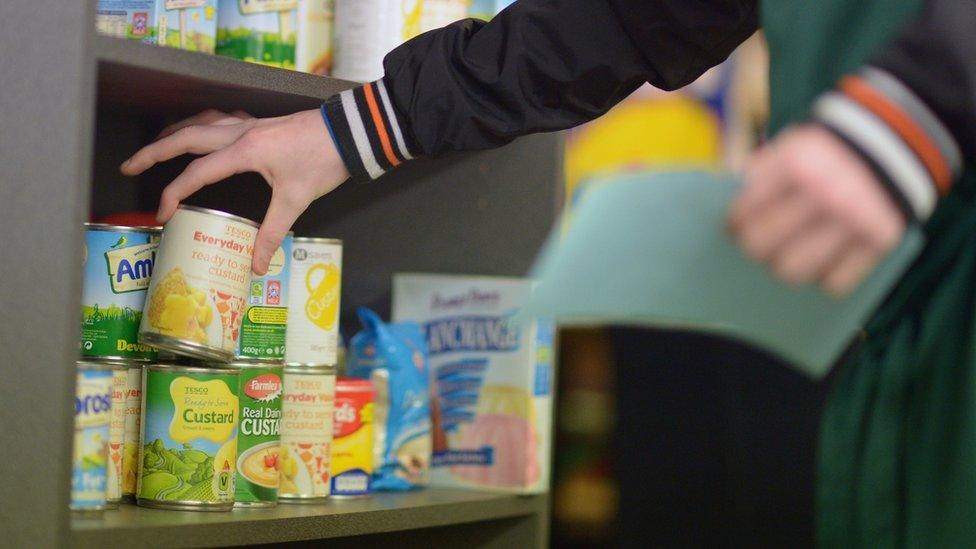Trussell Trust: Charity's concern amid increase in food parcels
- Published
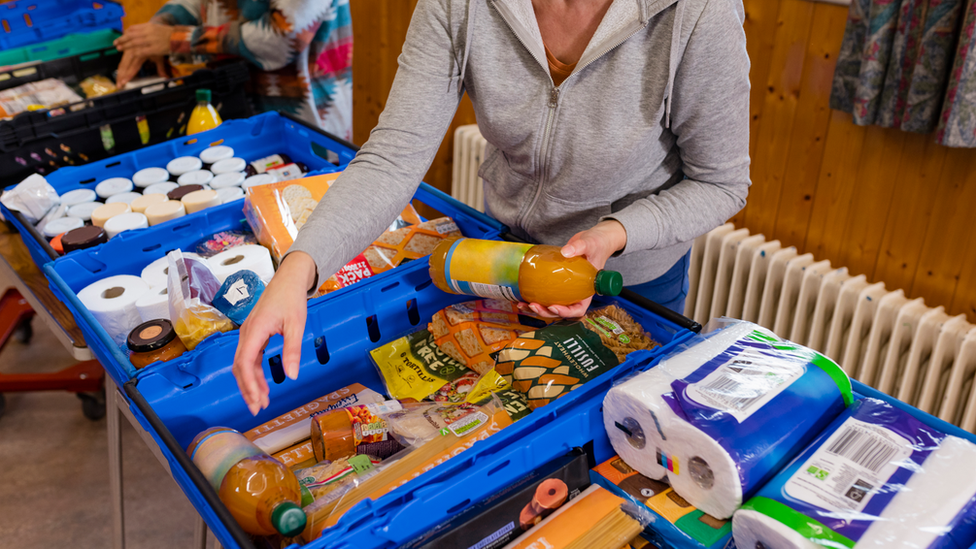
The Trussell Trust says use of its South East foodbanks increased by nine per cent in 12 months
A food bank charity has raised concerns about hardship among low-income households after it witnessed a 9% rise in demand in south-east England.
The Trussell Trust said it handed out 165,000 food parcels in the region between April and September 2023.
It also said it sent out 63,800 emergency food parcels to support 27,000 children across the region, which is a 7% increase on last year.
The government said it is providing billions of pounds in support packages.
Emma Revie, chief executive at the trust said: " An increasing number of children are growing up in families facing hunger, forced to turn to food banks to survive.
"A generation is growing up believing that it's normal to see a food bank in every community. This is not right. "
The Trust said 68% of all the parcels provided in the South East between April and September 2023 were for families with children, and 27,853 people were using a food bank for the first time during that period.
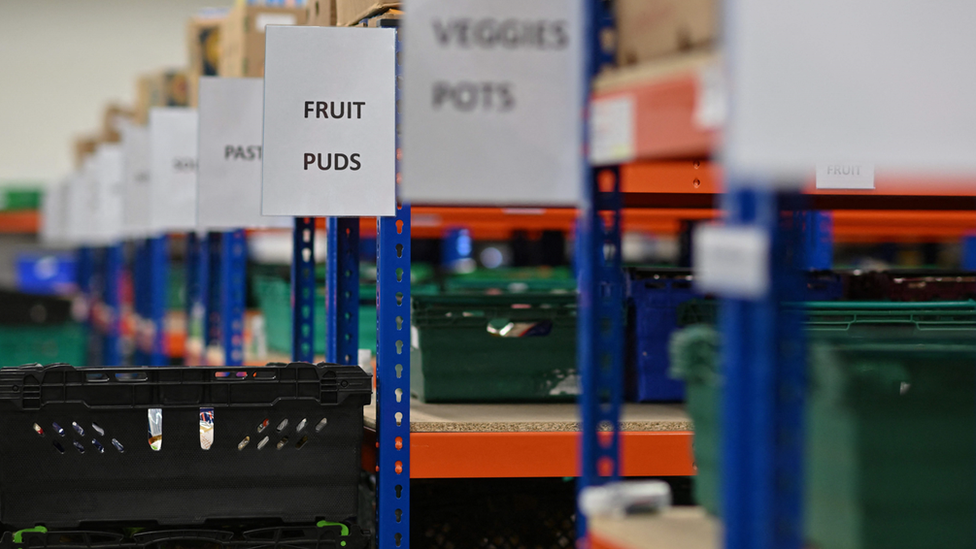
The Trust says food banks are at breaking point because of increased demand
The Trussell Trust is calling on the government to ensure when Universal Credit rises in April 2024, the increase is in line with inflation.
A Department for Work and Pensions spokesperson said: "There are 1.7m fewer people in absolute poverty than in 2010, but we know some families are struggling, which is why we are providing a record support package worth £3,300 per household.
"This includes the latest cost of living payments paid directly to over eight million households this year, our decision to raise benefits by over 10% earlier this year and our £2bn Household Support Fund which is helping people to buy essentials.
"We also know that households are at least £6,000 a year better off in full-time work than out of work on benefits, and to help people out of poverty through work we are also increasing the National Living Wage again and investing £3.5 billion to help thousands into jobs, grow the economy and bear down on inflation."

Follow BBC South East on Facebook, external, on X, external, and on Instagram, external. Send your story ideas to southeasttoday@bbc.co.uk, external.
Related topics
- Published26 October 2023
- Published19 October 2023

- Published22 September 2023

- Published21 September 2023
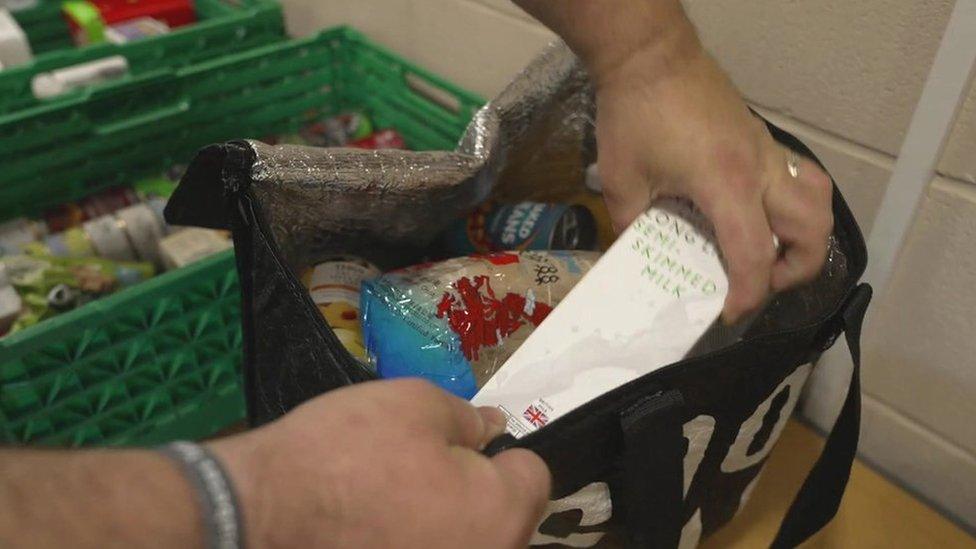
- Published26 April 2023
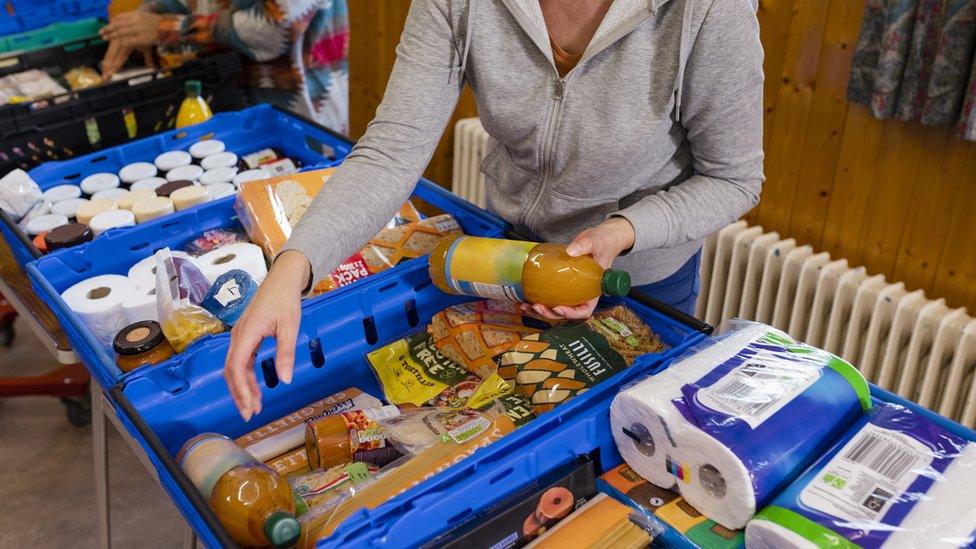
- Published13 June 2022
